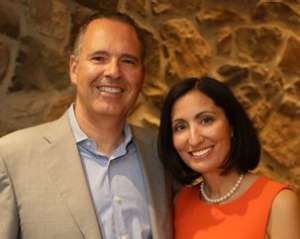The university’s Sam and Diana Scalia Sustainable Built Environment and Real Estate Program coaches students on the future of real estate, as sustainability becomes an increasingly important consideration.
“The mandate is to educate students and the broader public on the benefits of green buildings and environmentally responsible real estate development,” says Thomas Walker, director of the David O’Brien Centre for Sustainable Enterprise at Concordia’s John Molson School of Business, which houses the program. “It involves thinking about the long-term.”
Montreal-based construction firm Samcon donated $300,000 to make the launch of the program possible. The business is best known for its urban redevelopment, building condominiums which revitalize and transform Montreal neighbourhoods.
“I’m interested in the ideas and the research students will come up with,” says Sam Scalia, president and founder of Samcon. The program is named in recognition of Scalia and his wife Diana Ferrara-Scalia, Samcon’s strategic advisor.
“We have a shared vision for sustainability and together we have nurtured the culture of sustainability over the years,” says Ferrara-Scalia. “Our urban infill initiatives have re-used urban land efficiently and in turn promoted a healthier environment within the community. Our dense urban designs make it easier for our clients to walk or take public transportation to their destination. Walking within the neighbourhood helps both the local economy and the environment by decreasing CO2 emissions.”
“We are happy to be a part of Concordia’s sustainable real estate program as advancements are made in sustainable initiatives. We continue to research environmentally sound building materials and construction waste recycling,” she says.
“If Concordia can come up with the next great design for construction products, it could potentially revolutionize the industry,” says Scalia, whose father and uncles were also builders.
Existing building materials have a negative environmental impact. As Scalia explains, coal is used to smelt metal — and also to make glass — which releases pollutants into the atmosphere.
“One of the challenges is convincing real estate developers to go green,” says Walker.
“To address that challenge, the Sam and Diana Scalia Program will support research activities that:
- Explore the environmental benefits of green buildings
- Perform financial cost/benefit analyses of sustainable buildings for commercial and residential real estate developers
- Provide policy recommendations for government regulators who aim to encourage green building methods via fiscal stimuli and/or revised building codes.
“It could be a bit more costly, or involve more work, yet the benefit is a cleaner, healthier society,” says Walker. “We’re glad that Sam Scalia saw the value in this program, and saw that sustainability is a top issue for the real estate industry and our government to tackle.”
 Sam Scalia, Samcon's president and founder, and his wife Diana Ferrara-Scalia, its strategic advisor
Sam Scalia, Samcon's president and founder, and his wife Diana Ferrara-Scalia, its strategic advisor